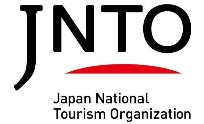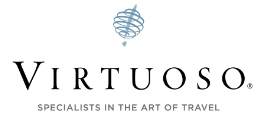
JAPAN WELCOMED THE UNWTO WORLD FORUM ON GASTRONOMY TOURISM 2022
The World Tourism Organization (UNWTO) and Basque Culinary Center held the 7th UNWTO World Forum on Gastronomy Tourism on 12-15 December 2022, in Nara. |
 |
JAPAN WELCOMED THE UNWTO WORLD FORUM ON GASTRONOMY TOURISM 2022
The World Tourism Organization (UNWTO) and Basque Culinary Center held the 7th UNWTO World Forum on Gastronomy Tourism on 12-15 December 2022, in Nara. |
Category: Asia Pacific - Japan - Industry economy
- Tourism
This is a press release selected by our editorial committee and published online for free on 2023-01-30
The Japan Tourism Agency, Japan National Tourism Organization (JNTO) and Nara Prefectural Government, supported the organisation of the forum, which brought together more than 450 delegates from 30 countries in person and over 1,000 participants from 125 countries online, notably stakeholders in the food and tourism sectors.
In the opening, UNWTO Secretary-General Zurab Pololikashvili said: “This year’s Forum represents a unique opportunity for experts to share their best practices and enhance the role of gastronomy tourism in talent, sustainability, innovation, and social inclusion, and highlight its importance for regional and rural development”.
UNWTO defines gastronomy tourism as a type of tourism activity which is characterized by the visitor’s experience linked with food and related products and activities while travelling.
In promoting gastronomy tourism in Japan to the Forum’s global audience, JNTO provided information on destinations across the country where visitors can explore the depth of Japanese food culture.
These included the host prefecture of Nara, said to be one of the birthplaces of Japanese food culture, including the use of indispensable ingredients such as sake and dashi (a broth made with dried bonito flakes, kombu seaweed and shiitake mushrooms).
In a panel discussion on Japanese gastronomy tourism moderated by JNTO Executive Vice President Rieko Nakayama, experts in food, sake brewing, and tourism shared best practices.
“JNTO uses food as a hook for inbound tourism promotion as it is one of the main motivations for overseas tourists to visit Japan”, she explained.
“This panel discussion was very informative from various perspectives, including the fact that the success of gastronomy tourism depends vitally on collaboration among local stakeholders, such as restaurants, sake brewers, farmers, accommodation facilities, and hot springs operators. Developing people with the necessary skills is essential too. We also learned that local cuisine, if strategically branded, can help to improve the brand value of the region itself.”
JNTO has long incorporated cuisine in its communication strategy, and continues to do so in its most recent publications, such as its “Enjoy My Japan” campaign (online platform allowing visitors to explore various faces of Japan), as well as its guides “Japan: Where Luxury Comes to Life” and “Explore Deeper: Sustainable Travel Experiences in Japan”.
Likewise, the Japan Convention Bureau – JNTO’s business events department – highlights all the possibilities offered by Japanese food for international conferences and incentive travel alike.
“Cuisine is a key element of meetings, and planners can make it an amazing window on Japanese culture for their participants!”, says Yoko Takano, General Director of JNTO’s Paris office.
“There are countless options, from festival-like buffets in Japanese gardens to refined meals in one of Japan’s many Michelin-starred restaurants, without forgetting sushi, noodle or pastry workshops”.
Event planners can find gastronomy-related suggestions in some of the latest resources published by Japan Convention Bureau, such as its virtual visit website (featuring no less than 10 regional cities) or its guide “Japan: Inspiration for Incentive Travel”.
|
|





